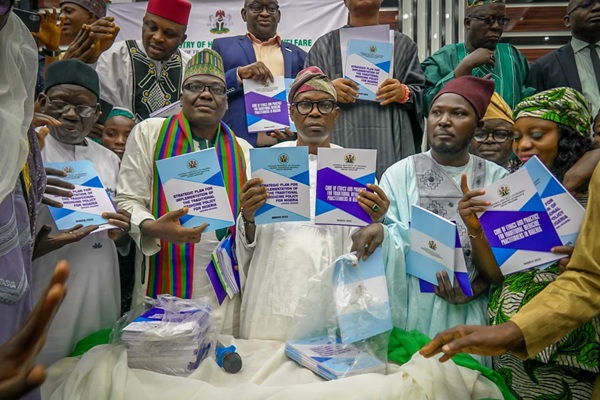News Investigators/ The Federal Government says it is taking bold steps to strengthen the evidence base for traditional medicine in Nigeria to ensure safety, efficacy, and integration into the national health system.
Iziaq Salako, Minister of State for Health and Social Welfare, said this on Monday in Abuja, at the commemoration of the 2025 African Traditional Medicine Day.
Mr Salako said the theme of this year’s celebration, “Strengthen the Evidence Base for Traditional Medicine,” was timely as Africa seeks homegrown solutions to its health challenges, especially with the decline of overseas development assistance.
According to him, traditional medicine has long been the first and sometimes the only source of healthcare for millions of Nigerians, particularly in rural areas.
“Evidence is the bridge between belief and policy. It is what will allow traditional medicine to move from the periphery to the mainstream of healthcare delivery, not just in Nigeria but across the continent,” he said.
He said the federal government had rolled out several initiatives to mainstream traditional medicine.
“These include the establishment of the Department of Traditional, Complementary and Alternative Medicine (TCAM) in the Ministry of Health.
“The development of a Traditional Medicine Policy; and the documentation of over 200 medicinal plants in the Nigerian Herbal Pharmacopoeia and Essential Medicinal Plants List,” he said.
The minister also unveiled two key documents – the Strategic Plan of Action for the Implementation of the Traditional Medicine Policy and the Code of Ethics and Practice for Traditional Medicine Practitioners.
According to him, the documents will serve as roadmaps for practitioners and policymakers.
He noted that the federal government, through agencies such as the Nigeria Natural Medicine Development Agency (NNMDA), the National Institute for Pharmaceutical Research and Development (NIPRD), and NAFDAC, was investing in research, regulation, and standardisation of traditional medicine.
Mr Salako called on all 36 states and the FCT to establish Traditional, Complementary, and Alternative Medicine Departments or Boards, in line with a resolution of the 62nd National Council on Health.
On international collaboration, he said Nigeria was working with the West African Health Organisation (WAHO), the World Health Organisation, and countries such as China and India to strengthen research, manpower development, and commercialisation of phytomedicine.
He added that the government was also working to revive the Federal College of Complementary and Alternative Medicine (FEDCAM), which has remained underutilised since its closure by the NUC in 2010.
He stressed that traditional medicine and modern medicine were not rivals but allies in the country’s quest for Universal Health Coverage (UHC).
“Nigeria, under President Bola Ahmed Tinubu, is ready and committed to leading the way in making traditional medicine a reliable and respected part of our national healthcare architecture,” he said.
The minister called for greater collaboration among practitioners, researchers, policymakers, development partners, and the private sector to ensure that traditional medicine is safe, effective, and accessible.
NAN

